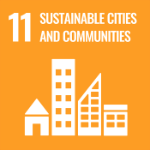Scope
This guidance lays out recommendations and actions to reduce carbon emissions from the University of Glasgow’s business travel.
By business travel, we mean all travel associated with our work, including for research and for
recruitment and teaching.
The guidance supports the University’s Climate Change Strategy and Action Plan, Green Glasgow.
The guidance does not include actions to reduce emissions used by commuting but
colleagues are encouraged to use active travel and public transport and follow advice in the University’s Strategic Transport and Travel Plan.
It should be read in consultation with our Policy for Overseas Business & Study Travel Safety which covers risk assessment and planning, travel and insurance booking, pre-travel information, advice and training, in-trip traveller communications, support and monitoring, emergency support, care and extraction, incident reporting, recording and post-trip debriefs.
The global context
In 2015, in the United Nations Paris Climate Agreement, 195 countries agreed on the need to keep global temperature increases this century to well below 2 degrees centigrade, while pursuing efforts to limit the increase to 1.5 degrees centigrade.
In 2018 the Intergovernmental Panel for Climate Change (IPCC) demonstrated that limiting global heating to 1.5 degrees centigrade would require ‘net zero’ carbon emissions by around 2050. Allowing global heating to increase by 2 degrees centigrade would risk many more potentially catastrophic impacts in many parts of the world, including drought, floods, extreme heat, and poverty for hundreds of millions of people around the world.
This means that sustainability is an increasingly prominent issue in higher education: some research funders (for instance, the Wellcome Trust ) are now including environmental impact criteria in grant conditions, including asking grant-holders to minimise travel as far as possible.



